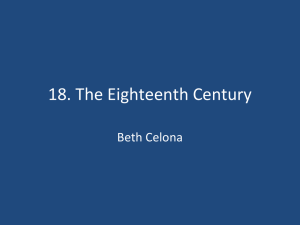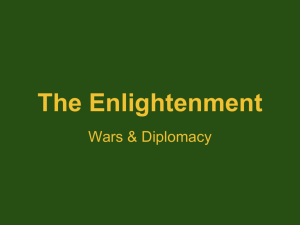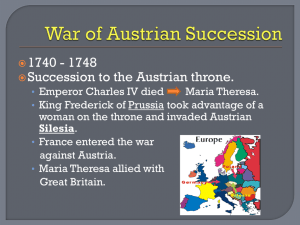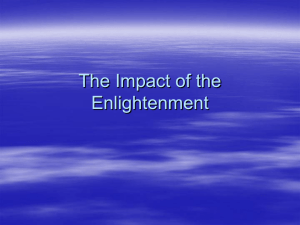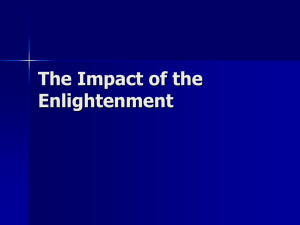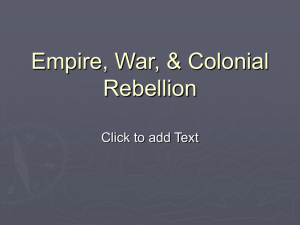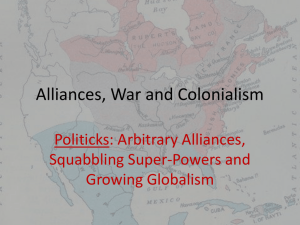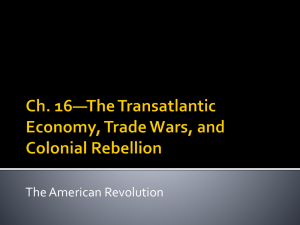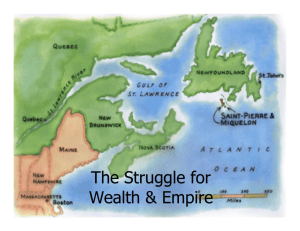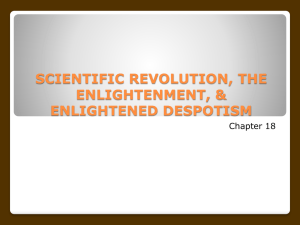AGE OF ENLIGHTENMENT
advertisement
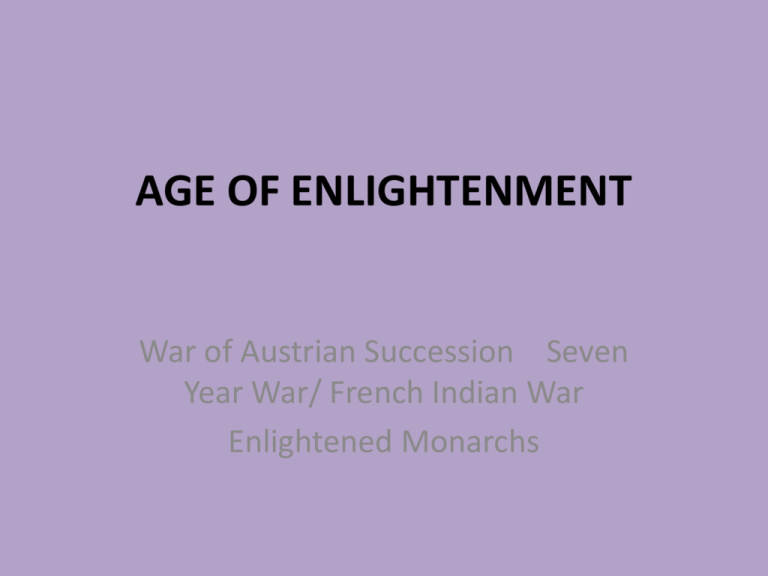
AGE OF ENLIGHTENMENT War of Austrian Succession Seven Year War/ French Indian War Enlightened Monarchs Also known as the Age of Reason • Scientific Revolution laid the foundation for a modern world view based on: – Rationalism = reason is the chief source of knowledge – Secularization = indifference to or rejection of religion or religious consideration • Use the scientific method to make progress towards a better society – Reason could be used to study and question human nature and society • Philosophe = intellectual of the Enlightenment – Want to change the world – Mostly of the nobility and middle class, most are French • Salon = elegant drawing rooms, where philosophes meet to discuss and spread ideas – Usually hosted by wealthy women • Enlightenment influenced by two Englishmen: – Newton – find natural laws, using his methods, that govern human society – Locke – people are molded by their experiences and can change with environment • Philosophes began to question ideas that had been long held as absolute truths, such as absolute monarchy and hierarchy in society Scientific Revolution Enlightenment Revolutions Enlightened Monarchs • Also known as Enlightened Absolutists, these are European monarchs who sought to govern using Enlightenment ideals – They were able to play with the ideas of the philosophes without threatening their own power – Did not bring about much reform, thought it would take away from their own power • Three well-known Enlightened Monarchs – Frederick II the Great of Prussia – Catherine the Great of Russia – Joseph II of Austria War of Austrian Succession • Rivalry between the Austrian family, the Hapsburgs, and the Prussian family, the Hollenzollerns • Austrian Holy Roman Emperor Charles VI had no male heir so he issued the Pragmatic Sanction – Stated that the empire could be passed to a female heir, his daughter Maria Theresa – Also all Hapsburg lands would remain intact under one ruler – All European rulers agreed to this • In 1740 Charles dies and Frederick the Great of Prussia, followed quickly by France, violate the Sanction and invade Austrian territory – Prussia seizes Silesia, one of the richest Austrian provinces – Great Britain joins the war on the side of Austria against France, Prussia, and Spain • Fought in three areas of the world: – Europe – Asia – North America • At the end of the war in 1748, all property is returned except Silesia, which Prussia keeps Seven Years’ War/ French and Indian War • Lasts from 1756 to 1763 • Austria is angry about Silesia and wants revenge – Diplomatic Revolution = Austria makes an alliance with traditional enemy France against Prussia • Russia also joins, although they pull out during the war – Due to this, Great Britain allies with Prussia • Rivalries over colonies also played a major role in leading to this war • Areas of conflict: – Europe – all territories returned at war’s end – India – known as the Great War for Empire • France leaves India to Britain – North America – also known as the French and Indian War • Britain gains Canada from France and Florida from Spain • Louisiana Territory goes to Spain (for losing Florida) • The war ends with Prussia winning on the European continent and Great Britain winning overseas – The Treaty of Paris makes Great Britain the world’s greatest colonial power – France loses big and wants revenge
